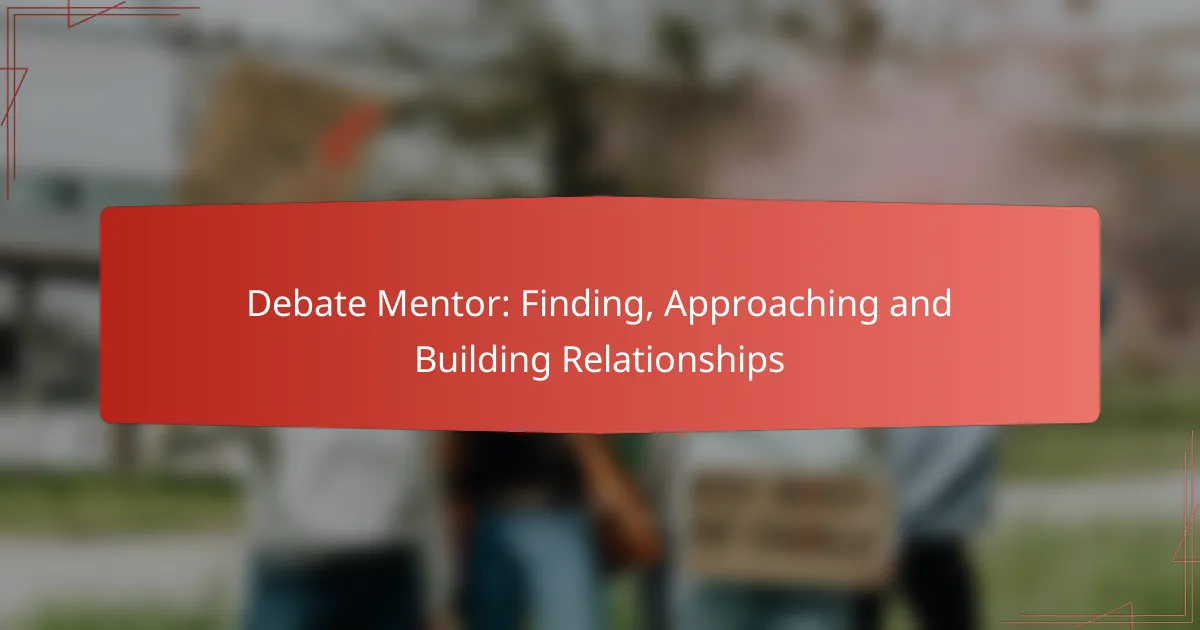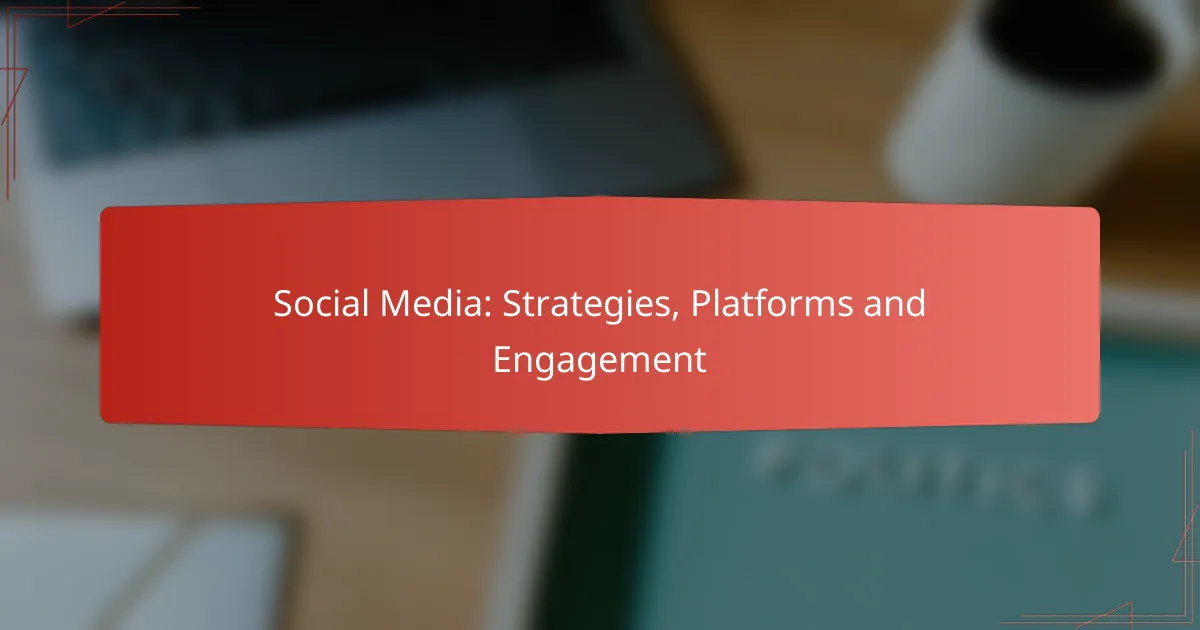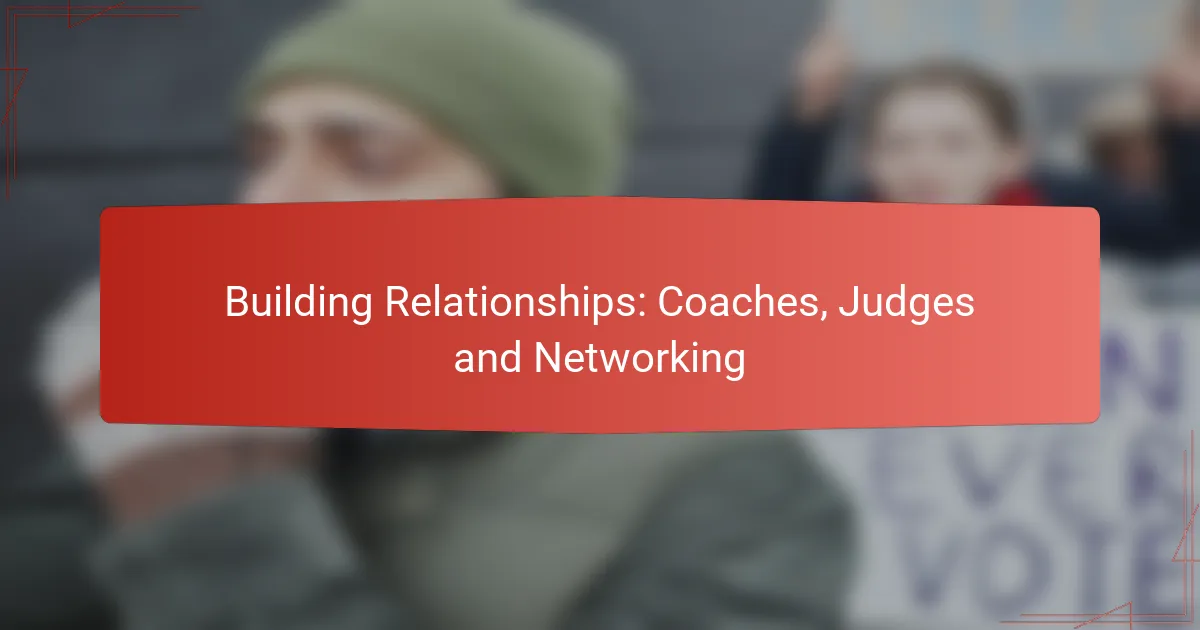Finding a debate mentor can significantly enhance your skills and confidence in the art of debate. By leveraging educational institutions, networking at competitions, and utilizing online platforms, you can identify potential mentors who align with your interests. Approaching them thoughtfully and respectfully is crucial for establishing a productive relationship, which can be further strengthened through consistent communication and mutual respect.

How to find a debate mentor in the United States?
Finding a debate mentor in the United States involves leveraging educational institutions, networking at competitions, and engaging with online platforms. A mentor can provide guidance, feedback, and support, enhancing your debate skills and confidence.
Utilize university debate programs
University debate programs are a prime resource for finding mentors. Many universities have established debate teams that welcome participants of all skill levels. Reach out to local colleges or universities to inquire about their programs and potential mentorship opportunities.
Attend public debates or workshops hosted by these teams. This not only allows you to observe experienced debaters but also gives you a chance to connect with them personally. Building relationships with coaches and team members can lead to valuable mentorship.
Network through debate competitions
Debate competitions are excellent venues for meeting potential mentors. Participate in local, regional, or national tournaments to interact with experienced debaters and coaches. After rounds, take the initiative to introduce yourself and express your interest in mentorship.
Consider joining organizations that host these competitions, as they often have resources for connecting mentees with mentors. Follow up with individuals you meet, and don’t hesitate to ask for advice or guidance on your debate journey.
Engage with online debate communities
Online debate communities offer a wealth of resources and connections. Platforms like Reddit, Facebook groups, and specialized forums allow you to engage with experienced debaters and coaches from across the country. Actively participate in discussions, share your experiences, and seek advice.
Look for mentorship programs or initiatives within these communities. Many online platforms facilitate mentor-mentee pairings, making it easier to find someone who can provide tailored guidance and support for your debate skills.
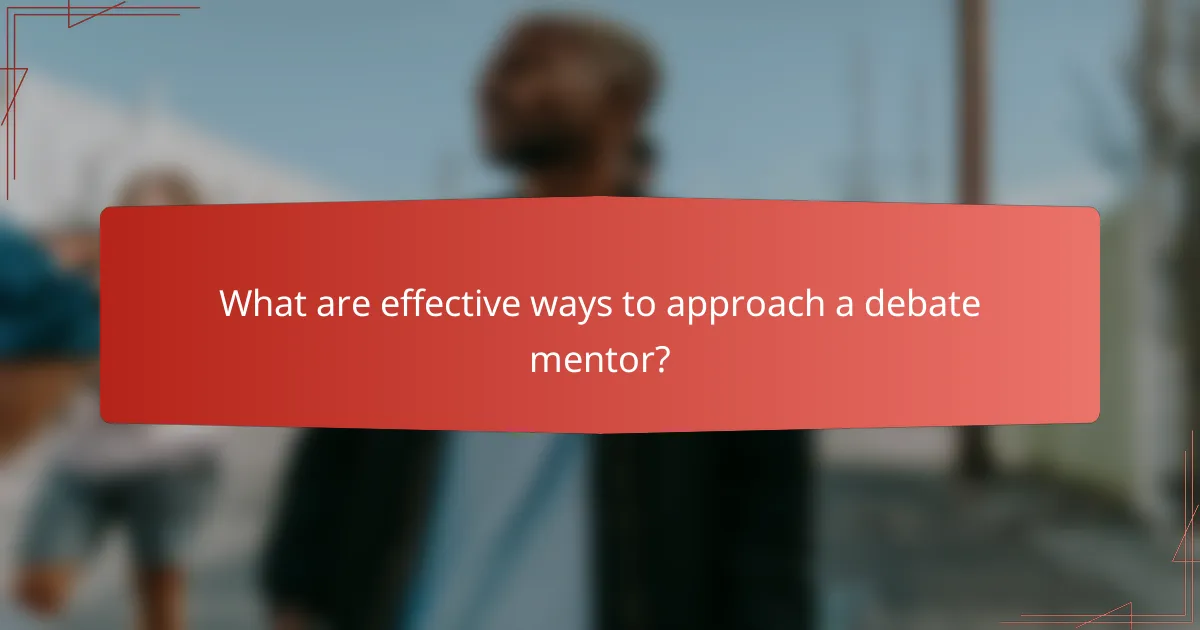
What are effective ways to approach a debate mentor?
To effectively approach a debate mentor, start by researching potential mentors who align with your interests and goals. A thoughtful, respectful approach increases your chances of building a productive relationship.
Craft a personalized message
When reaching out to a potential mentor, personalize your message to demonstrate genuine interest. Mention specific aspects of their work or achievements that resonate with you, which shows you have done your homework.
A well-crafted message should be concise yet informative. Aim for a length of around 150-200 words, clearly stating who you are, why you admire their work, and what you hope to gain from the mentorship.
Showcase your debate interests and goals
Clearly articulate your debate interests and goals in your communication. This helps the mentor understand your aspirations and how they can assist you in achieving them.
Consider including details such as the types of debates you enjoy, any competitions you have participated in, and specific skills you wish to develop. This context allows the mentor to tailor their guidance to your needs.

How to build a lasting relationship with a debate mentor?
Building a lasting relationship with a debate mentor involves consistent communication, mutual respect, and a willingness to learn. Establishing trust and demonstrating commitment to your development will strengthen this important connection.
Maintain regular communication
Regular communication is essential for nurturing your relationship with a debate mentor. Schedule consistent check-ins, whether weekly or bi-weekly, to discuss your progress, challenges, and goals. This not only keeps your mentor informed but also shows your dedication to improvement.
Utilize various communication methods, such as emails, phone calls, or video chats, to maintain engagement. Be proactive in reaching out with questions or updates, and be sure to respond promptly to their messages to foster a two-way dialogue.
Seek feedback and implement suggestions
Actively seeking feedback from your mentor is crucial for your growth as a debater. After practice sessions or debates, ask for specific insights on your performance, including strengths and areas for improvement. This demonstrates your eagerness to learn and adapt.
Once you receive feedback, take the time to implement their suggestions. Create a plan to address the areas highlighted, and follow up with your mentor to discuss your progress. This shows that you value their input and are committed to refining your skills.
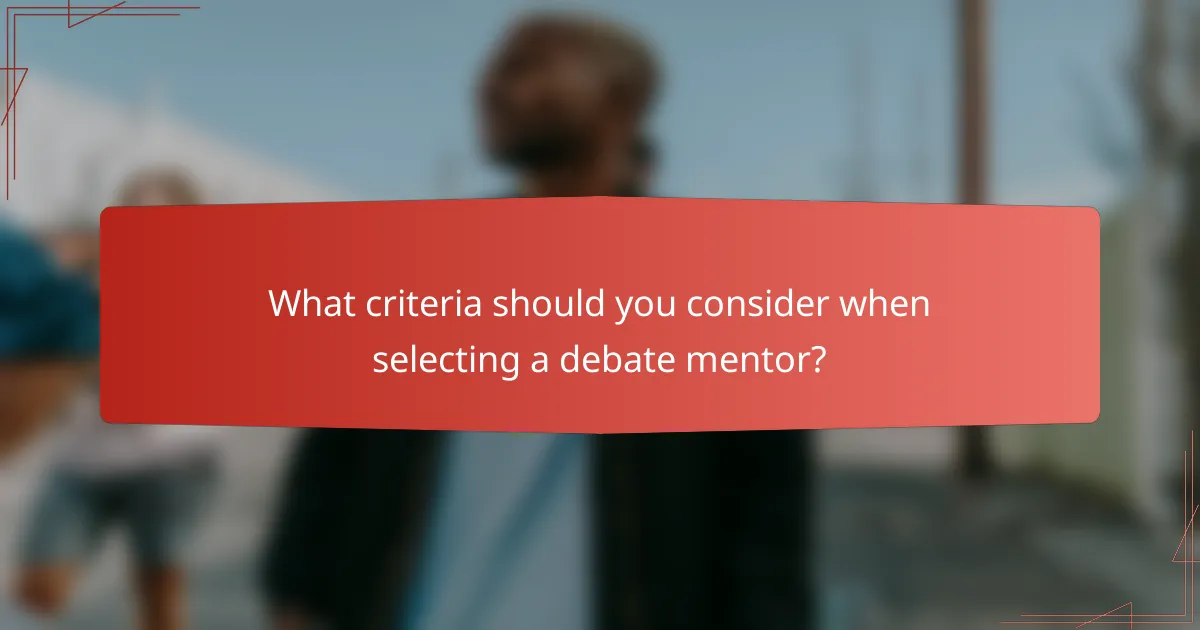
What criteria should you consider when selecting a debate mentor?
When selecting a debate mentor, consider their experience, compatibility with your learning style, and their ability to provide constructive feedback. A good mentor should not only be knowledgeable but also align with your personal approach to learning and improvement.
Experience in your specific debate format
It’s crucial to choose a mentor who has substantial experience in the specific debate format you are participating in, whether it’s policy, Lincoln-Douglas, or public forum. Their familiarity with the nuances and strategies of your format can significantly enhance your skills and understanding.
Look for mentors who have a proven track record in competitions relevant to your format. This could include having coached successful teams or having participated in high-level debates themselves. Their insights will be invaluable in navigating the complexities of your chosen style.
Compatibility with your learning style
Finding a mentor who matches your learning style can greatly influence your development as a debater. Some individuals thrive under a structured approach, while others may prefer a more flexible, discussion-based method. Identify what works best for you before seeking a mentor.
Consider how you respond to feedback and instruction. If you benefit from direct, actionable advice, look for mentors who provide clear guidance. Conversely, if you prefer exploring ideas through dialogue, seek mentors who encourage open discussions. This alignment will foster a more productive mentoring relationship.

What are the benefits of having a debate mentor?
Having a debate mentor can significantly enhance your debating abilities and overall confidence. A mentor provides personalized guidance, feedback, and support, helping you navigate the complexities of debate more effectively.
Improved debate skills and strategies
A debate mentor can help you refine your argumentation techniques and develop effective strategies tailored to your strengths. They can provide insights into various debate formats, such as Lincoln-Douglas or Policy debate, and help you understand the nuances of each style.
Working with a mentor often involves practicing specific skills, such as constructing logical arguments, conducting research, and anticipating counterarguments. Regular practice sessions can lead to noticeable improvements in your debating performance over time.
Increased confidence in public speaking
Mentorship can greatly boost your confidence in public speaking, a critical component of successful debating. A mentor can help you identify your speaking strengths and weaknesses, allowing you to focus on areas that need improvement.
Through constructive feedback and practice, you can become more comfortable speaking in front of an audience. Techniques such as vocal exercises, body language coaching, and mock debates can further enhance your public speaking skills, making you a more persuasive and engaging speaker.

What challenges might arise in the mentor-mentee relationship?
Challenges in the mentor-mentee relationship can hinder effective communication and growth. Common issues include communication barriers and misaligned expectations, which can lead to frustration and unmet goals.
Communication barriers
Communication barriers can stem from differences in language, cultural backgrounds, or even varying levels of expertise. These factors may lead to misunderstandings or misinterpretations of advice and feedback.
To overcome communication barriers, both parties should establish clear channels for dialogue. Regular check-ins, whether through emails or face-to-face meetings, can help ensure that both mentor and mentee are on the same page.
Using simple language and avoiding jargon can also facilitate better understanding. Consider setting up a glossary of terms relevant to the field of debate to enhance clarity.
Misaligned expectations
Misaligned expectations occur when the mentor and mentee have different goals or assumptions about the relationship. For instance, a mentee may expect frequent guidance, while a mentor may believe that the mentee should take more initiative.
To align expectations, it’s crucial to have an initial discussion about goals, preferred communication styles, and the level of commitment from both sides. Documenting these expectations can serve as a reference point throughout the relationship.
Regularly revisiting these expectations can help adjust them as needed. This practice ensures that both parties remain engaged and focused on their shared objectives, fostering a more productive mentoring experience.
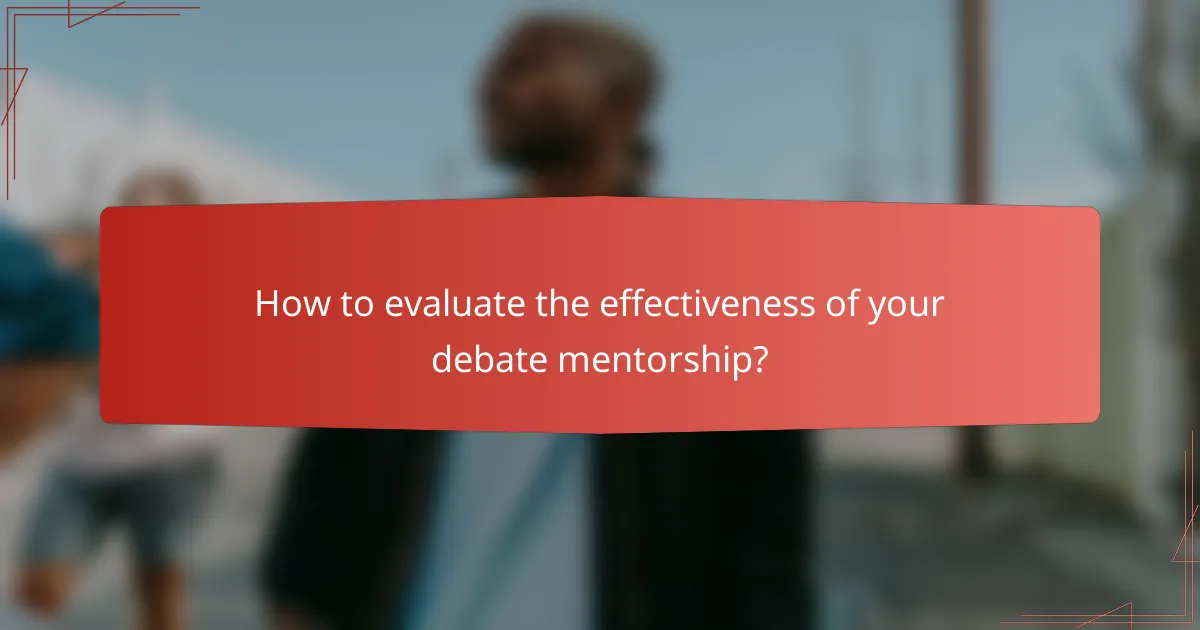
How to evaluate the effectiveness of your debate mentorship?
Evaluating the effectiveness of your debate mentorship involves assessing skill development, feedback quality, and overall confidence in debating. A successful mentorship should lead to noticeable improvements in your debating abilities and a greater understanding of debate strategies.
Assess skill improvement over time
To evaluate skill improvement, track your performance in debates over time. Look for changes in your argumentation, rebuttal strategies, and overall confidence. Regularly participating in debates and reflecting on your progress can provide clear indicators of growth.
Consider keeping a journal or log of your debate experiences, noting specific skills you’ve worked on and any feedback received. This will help you identify patterns in your development and areas needing further attention.
Additionally, compare your performance against established benchmarks, such as winning rates or feedback from judges. Aim for incremental improvements, such as enhancing your clarity or persuasiveness by a few percentage points over a season.
